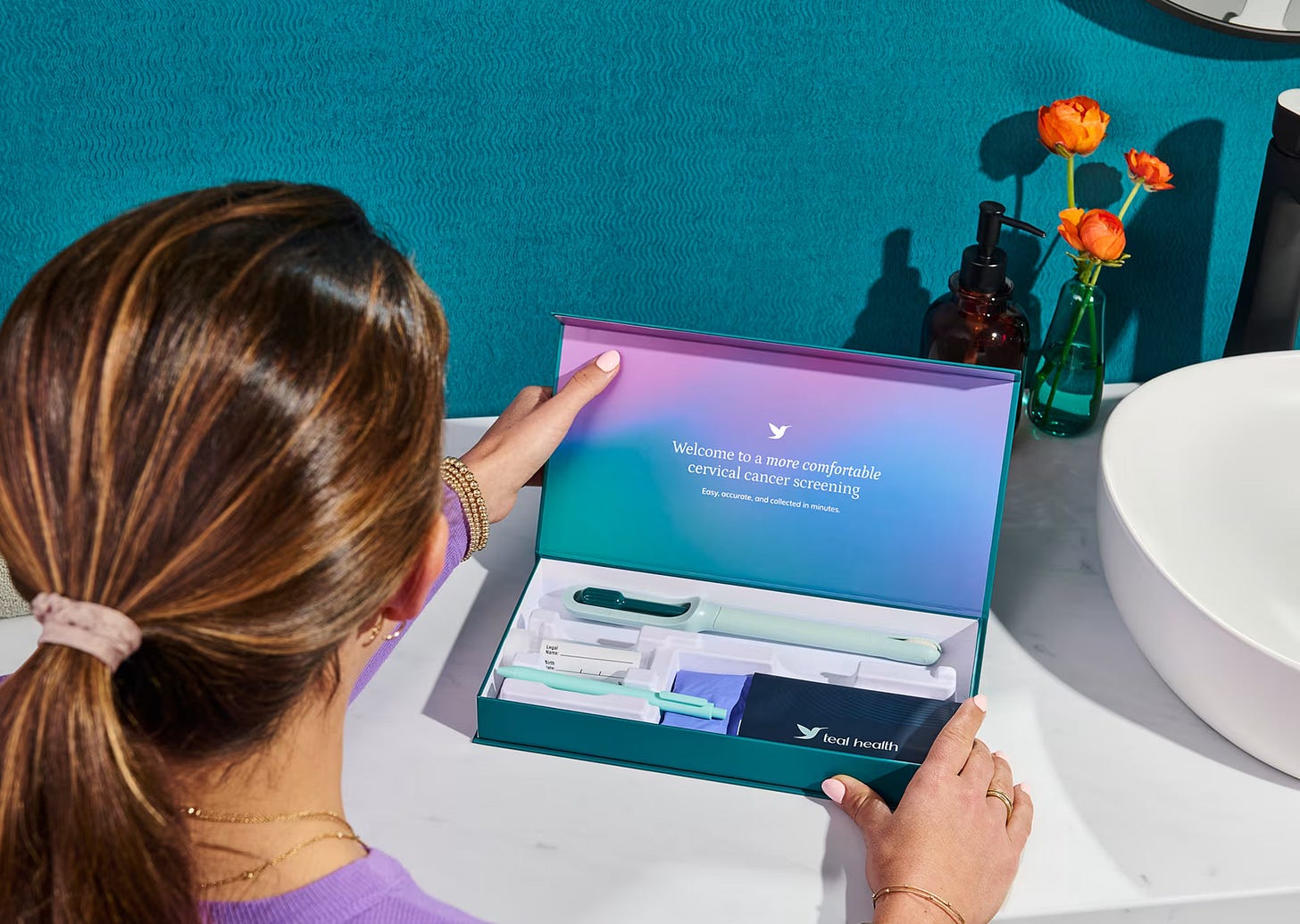Cervical Cancer Screening Just Got Easier for Women.
News from the Hispanic World in One Click
Welcome! La Chapulina Verde is bilingual. Every article is available in English and Spanish. Enjoy reading in your preferred language. Keep up to date and follow us on our social networks! Instagram, Threads, Facebook, and YouTube.
A company called Teal Health has made history by getting the first-ever at-home cervical cancer screening test approved by the FDA. The test is called the Teal Wand, and it lets women collect their own sample at home instead of going to the doctor.
Teal Health is a startup based in San Francisco. The company started working on the Teal Wand more than five years ago. The goal was to help more women get tested, especially those who live far from doctors or have busy schedules. Teal Health's CEO, Kara Egan, said the COVID pandemic showed people that getting care from home is possible and helpful.
The Teal Wand works like a tampon. It includes a soft swab that women insert to collect a sample. Then the sample is sent to a lab for testing. A clinical study showed that the Teal Wand is 96% accurate, which is almost the same as getting tested by a doctor.
The company plans to launch the product in California in June 2025. They are also talking to health insurance companies to try to get the test covered the same way a regular doctor’s visit is covered with no extra cost for most women.
Doctors say women should get tested for cervical cancer every three years starting at age 21. But one out of every four women falls behind on this because it can be hard to make time for an appointment. Teal Health hopes this new test will make it easier for women to stay healthy.
To get ready for the launch, Teal Health raised $10 million in January. Big investors like Serena Williams’ Serena Ventures and Laurene Powell Jobs’ Emerson Collective are helping fund the company. In total, Teal Health has raised $23 million.
Women’s health technology, also called “femtech,” is growing fast. In 2023, $680 million was invested in women’s health companies. Experts say more people are interested in women’s health now, not just for pregnancy or menopause but for overall health. Large companies in medicine and technology are starting to support these kinds of ideas too.






